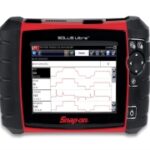Engine diagnostics is a crucial process for maintaining your vehicle’s health and performance. Here’s a brief overview:
1. What is Engine Diagnostics? Engine diagnostics involves using specialized tools to read and interpret data from your vehicle’s onboard computer system. This helps identify any issues or malfunctions within the engine and other related systems.
2. When to Perform Engine Diagnostics?
- Check Engine Light: If your check engine light comes on, it’s a clear sign that your vehicle needs diagnostics.
- Performance Issues: If you notice a decrease in performance, such as reduced power, rough idling, or poor fuel efficiency, it’s time for a diagnostic check.
- Routine Maintenance: Regular diagnostics can help catch issues early and keep your vehicle running smoothly.
3. What Can Engine Diagnostics Tell You?
- Fault Codes: Diagnostics can provide specific fault codes that indicate what might be wrong with your vehicle.
- Emissions: It can check for emissions-related problems, which are important for both environmental and legal reasons.
- Sensor Issues: Diagnostics can identify problems with various sensors, such as oxygen sensors, mass airflow sensors, and more.
4. Benefits of Engine Diagnostics
- Early Detection: Catching issues early can prevent more significant problems and costly repairs.
- Improved Performance: Ensures your vehicle is running efficiently and at its best.
- Environmental Impact: Helps maintain low emissions, contributing to a cleaner environment.

